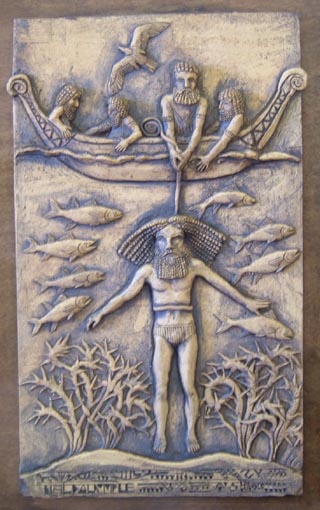Some things to think about in preparation for Wednesday’s class:
- Why do you think Patroclus volunteers to go fight in Achilles’s place?
- In several places, Patroclus is addressed directly, in the 2nd person, by the speaker of the epic (XVI.615; XVI.721; XVI.826). Why does Homer do this and what effect does this have on the narrative?
- Compare Achilles’s reaction to the death of Patroclus to Gilgamesh’s reaction to the death of Enkidu. In addition to the emotional content of their responses, what specific acts or rituals does each perform and what are their meanings in the face of death?
- What is the meaning of the tableaux rendered by Hephaestus on the shield of Achilles? How are the scenes related to each other? To the rest of the narrative?


